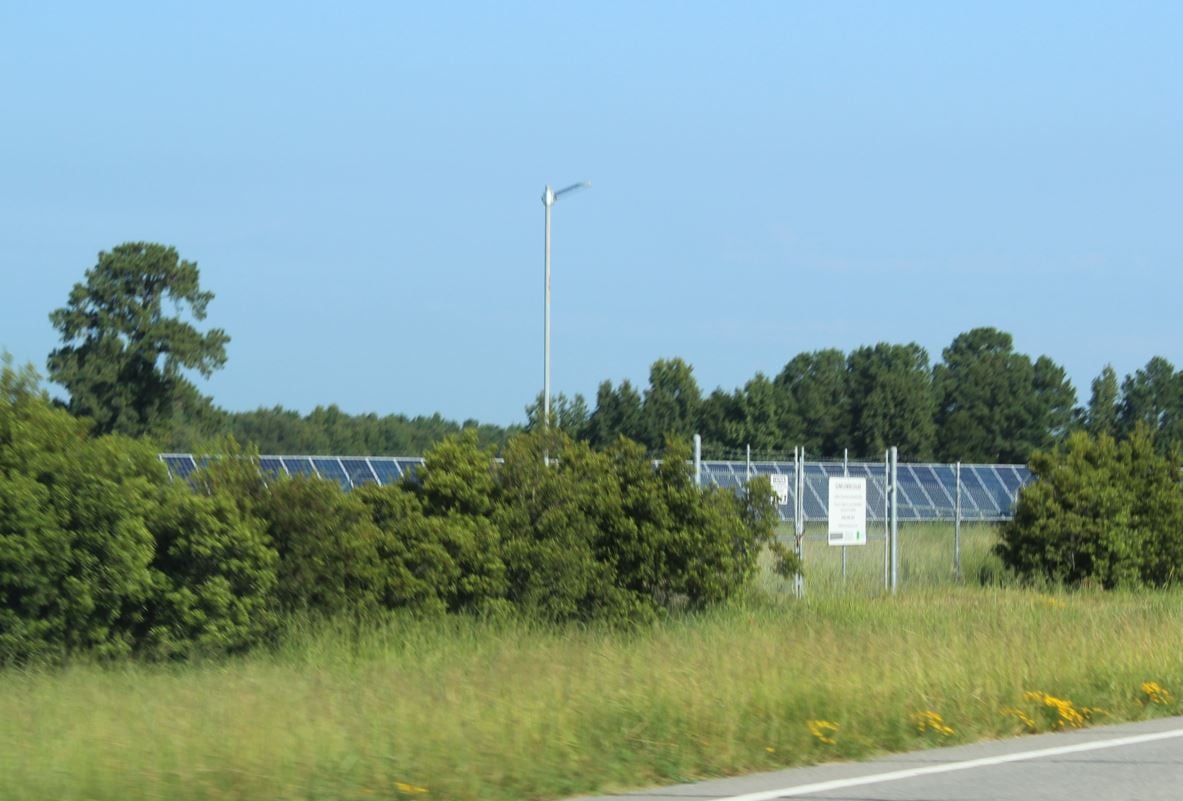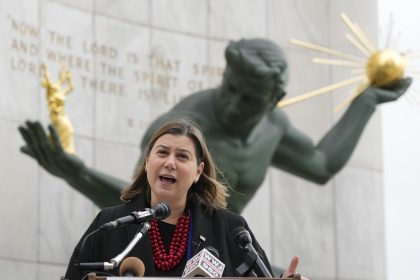NJ Appeals Court Backs State’s Siting Regs for Solar Projects

TRENTON, N.J. — A New Jersey appeals court on Tuesday upheld state siting requirements for new solar projects that seek to encourage clean energy development while also preserving its quickly diminishing agricultural lands.
The underlying dispute in the case stemmed from a Feb. 17, 2023, decision by the New Jersey Board of Public Utilities, denying reconsideration of project siting requirements established as part of the state’s Competitive Solar Incentive program.
Signed into law by Gov. Phil Murphy in June 2021, the state’s Solar Act established the incentive program and directed the utilities board to flesh it out “with administratively set incentive values, and a solicitation process for awarding contracts for grid supply solar facilities and net metered solar facilities greater than 5 MWs.”
The state legislature, meanwhile, codified its goals under the act, formally stating that it wants the state to get at least 50% of its electricity supply from renewable energy by 2030, and that the developers of future solar projects be directed toward “marginal land” and sites within the “built environment.”
In addition, it said its goal in promulgating the act was to “affordably expand New Jersey’s commitment to renewable energy while not compromising the state’s commitment to preserving and protecting open space and farmland.”
Armed with this direction, the utilities board hired an expert and began “four years of extensive stakeholder engagement.” The process culminated, in December 2022, with the launch of the Competitive Solar Incentive program.
Given the legislative history of the act, the board believed it was tasked to “minimize, as much as practicable, potential adverse environmental impacts[,]’ and lay out specific siting criteria to be applied to all incentive program-eligible facilities.'”
In essence, the siting criteria reflected where it is permissible for solar projects to be located, where solar construction is subject to restrictions and where it is prohibited. In doing so it stated that solar farm expansion would be limited to up to 5% of any New Jersey county’s preserved farmland.
The new rule also allows the utilities board to grant a waiver for development in prohibited locations if it deems the project to be in the public interest.
But the Mid-Atlantic Renewable Energy Coalition, a Pennsylvania nonprofit that represents wind developers, solar developers, wind turbine manufacturers and others organizations dedicated to the growth of renewable energy technologies, immediately sued the state, arguing that the board had unlawfully interpreted the new rule, imposing stricter than necessary burdens on developers.
Specifically, it claimed the plain language of the act states the 5% per county limit only applied to solar projects that sought a waiver to be sited on restricted land.
It asked the court to enforce another provision of the incentive program that would allow up to 2.5% of state farmland to qualify for energy development and ignore the county caps.
The utilities board was not persuaded by that argument and said in sticking to its guns, it was ensuring the state’s interest in preserving open space and agricultural lands would be applied to all solar projects on an equal basis.
On Tuesday, a three-judge panel composed of state Superior Court judges – Jack Sabatino, Hany Mawla and Robert Vinci – affirmed the board’s decision.
“Our de novo review of the record convinces us [the New Jersey Solar Act] is unambiguous and the Board correctly interpreted the act,” the judges wrote, adding that the law clearly states “in no case shall the projects approved by the Board pursuant to this section occupy more than [5%] of the unpreserved land containing prime agricultural soils and soils of statewide importance …. located within any county’s designated Agricultural Development Area.”
Later, they said, “It is self-evident the Legislature intended not to constrain solar development while the Board was establishing the 2.5% statewide benchmark.
“The Legislature could do this because it put the 5% per county limit in place, thereby permitting simultaneous solar development without detriment to a county’s agricultural lands,” they said.
“Our review of the record convinces us the Board’s interpretation of the act justifiably balanced these important considerations in a manner faithful to the statute’s text,” they concluded.
Evan Vaughan, executive director of MAREC Action, provided the following statement to The Well News:
“This unfortunate decision means that an overlapping state and county cap on solar development will inhibit larger projects which, by their economy of scale, deliver the lowest cost electricity. This decision will also make it more difficult to meet the state’s renewable energy and Energy Master Plan goals. As we strive to meet New Jersey’s growing demand for electricity, this decision will result in more of these large solar projects being built out of state.”
Dan can be reached at [email protected] and at https://twitter.com/DanMcCue
























